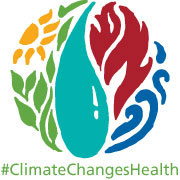 "I don't want people to think...that climate change is just about polar bears. It really is about direct public health issues like asthma and kids, like cardiovascular and pulmonary diseases associated with air pollution". -- Former EPA Administrator Gina McCarthy, in U.S. News & World Report
"I don't want people to think...that climate change is just about polar bears. It really is about direct public health issues like asthma and kids, like cardiovascular and pulmonary diseases associated with air pollution". -- Former EPA Administrator Gina McCarthy, in U.S. News & World Report
View the recorded workshop Climate Changes Health: Extreme Weather, Vulnerable Populations and the Many Benefits of Taking Action.
Due to the rise and frequency of extreme weather events, it’s important to emphasize the health threats and challenges imposed by climate change. While everyone will be faced with the health impacts inflicted by climate change, certain groups will disproportionately feel the health impacts, as they can be less climate-resilient.
| Vulnerable Population |
Vulnerability |
Climate Effects |
Health Threats |
| Children |
- Breathe more air and drink more water per body weight than adults
- Developing organs and low immunity
- Dependent on adults
- More time spent outdoors
|
- Air pollution
- Extreme heat
- Flooding and water contamination
- Food insecurity
- Drought
|
- Asthma and allergies
- Neurological disorders
- Heat-related illness
- Dehydration
- Diarrheal illness
- Drowning and injuries
- Psychological stress/imbalance
- Increased vector-borne diseases (e.g. Zika, West Nile Virus, Lyme disease)
- Malnutrition
|
| Older Adults |
- Low immunity
- Pre-existing conditions
- Limited mobility
|
- Extreme heat
- Air pollution
- Flooding
|
- Heat-related illness
- Dehydration
- Heart disease
- Psychological stress
- Falls
|
| Communities of Color |
- Structural racism
- Inadequate infrastructure
- Health disparities
- Lack of social capital
- Language barrier
|
- Flooding
- Physical damage to communities
|
- Psychological stress/imbalance
- Increased heart and lung complications
|
| Low-Income Communities |
- Less resources and means to evacuate
- Inadequate infrastructure
|
- Flooding
- Physical damage to communities
- Food insecurity
|
- Psychological distress/imbalance
- Physical displacements
- Malnutrition
|
Other groups that are particularly vulnerable to the health effects of climate change include: pregnant women, immigrant groups (including those with limited English proficiency), indigenous peoples, the disabled, vulnerable occupational groups, such as workers who are exposed to extreme weather, and people with pre-existing or chronic medical conditions.
From Public Health Newswire:
(*blog posts only represent the views of the author)
Follow the conversation using the hashtag #ClimateChangesHealth.
CLIMATE CHANGE AND HEALTH SPOTLIGHTS